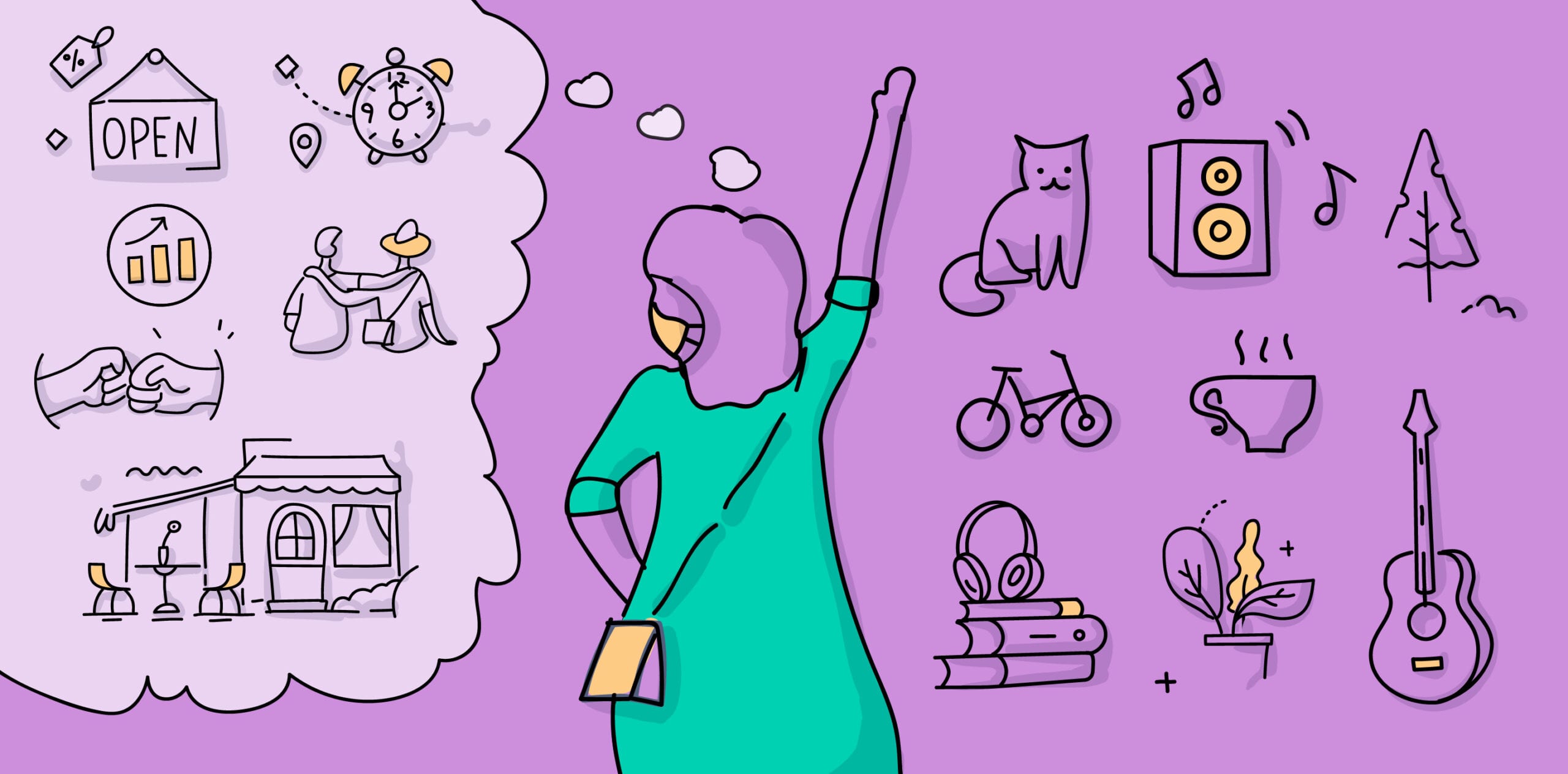To cope with COVID, our team embraces the little things — and the big ways this time is changing us. The people of DH burst into discussion recently, prompted by a question from Linda on our #wellness channel: “Anyone have some ways that work for you to keep the optimism alive?”
It happened on Slack, as we do now.
Not to put words in Linda’s Slack, but I took the question to be less about optimism and more about survival: What are you doing so that you can keep going? What makes your one foot go in front of the other foot, still, when none of us knows where we’re going or when? The responses flooded in.
We thought what we’ve learned about coping, about methods of day-to-day-to-weeks-to-months survival, might be useful to others.
At DH, we are doing little things.
We are taking early-morning walks with the dog. Listening to podcasts. Watching “Queer Eye.” Applying face masks. Drinking wine. Reading “Bossypants.” Some of us are doing the laziest yoga by Adriene available on YouTube, and some are doing the hard ones.
We are taking Beyoncé-specific dance-party breaks. Making chocolate chip cookies. Eating chocolate chip cookies. Reading escapist novels, curating upbeat playlists, binge-watching Netflix, doing jigsaw puzzles, taking midday showers. Buying the expensive candles, “because who cares.” Cooking fancy meals once a week.
Rereading “Bossypants.” Hitting repeat on “Queer Eye.”
During work hours, we’re pulling away from our home offices (or from our kitchen tables or our corners of our couches), making efforts to move our bodies, even if it’s just a 15-minute walk.
“When I force myself to prioritize ‘me’ time during the workday, I always feel more energized,” Katie says.
“Working in my garden,” Jasmine says. “I’ve found it to be a really therapeutic way to expend energy now.”
“Meditation, yoga, acupuncture, chiropractic,” Sara says.
These are things people do to relax, to reset, to quell stress and anxiety. They are pretty normal things, although maybe sometimes we’re doing them in abnormal quantities. Without a ton of options, we are heavily committing to the one or two “normal things” that help carry us through another week or hour of the severely abnormal.
But also, we found out as the discussion continued, we are doing abnormal things. Or rather, different things. Or rather, thinking in different ways. Adjusting our expectations, letting our perspectives shift, reframing the narrative. Bending our brains to meet our new realities.
We’re learning to persevere when our normal ways — work hard, get stuff done — don’t solve the problem. When optimism falls short.
We are “being OK having a down day,” as Katie says.
“Just acknowledging that stuff is hard right now and that we will get through it,” Sara says.
I wrote that I am being more open to doing (and feeling) what seems necessary at the moment, even if I had some other big plans or hopes for the day. Long-term survival requires flexibility.
And, like others, I am prioritizing connection over, or at least alongside, accomplishment.
That includes the connections we are keeping (or building) with co-workers, even remotely. Like when Linda stepped up to ask those initial questions, breaking the seal for others to relate their experiences and offer support.
It also includes connection with ourselves.
“Taking breaks from work and family to do things just for me,” Jennifer says. “Especially if you can go for a full day or two and just not have to do anything at all. It changes the whole world.”
We are submitting to reality. We are continuing to accept that this is not a phase. And the change in the world is happening to each of us, too.
This is what Jessica said:
“When COVID first started, I had this attitude like, ‘I’ve gotten through hard things before; I’ll get through this.’ After a lot of resistance, I finally surrendered to this truth: This is a time of transformation. I am not going to come out of this experience the same person I was going in. “How can I use this time and this experience to embrace the opportunity for transformation? That belief in the potential for transformation, my own and the world’s, is what keeps me going.”
Which, to me, seems like as good a way as any to survive — letting go of some things to grab hold of others. Assuming, of course, there will still be cookies.
Someone to listen
DH recently partnered with the Washington State Health Care Authority to support its launch of Washington Listens, which provides nonclinical support to people experiencing elevated stress because of COVID-19. Call (833) 681-0211.

